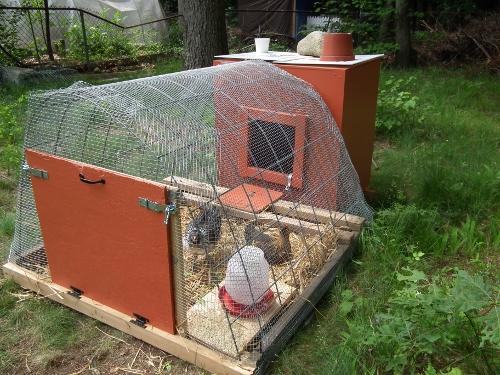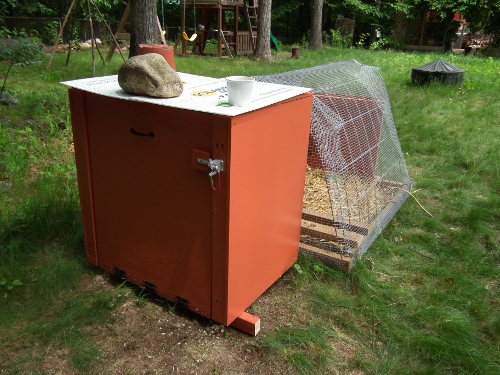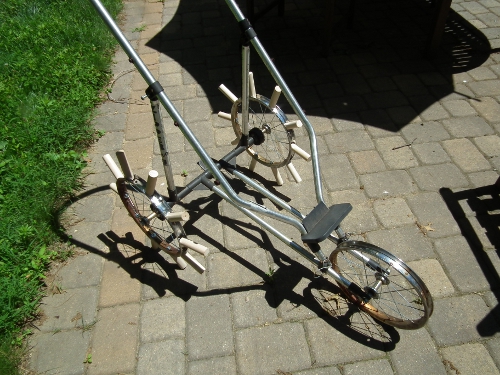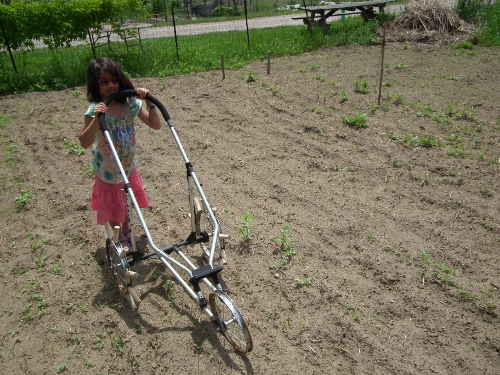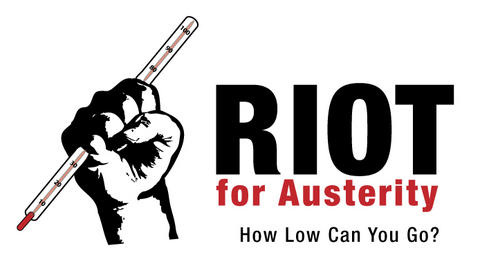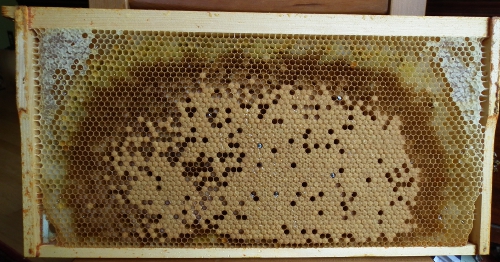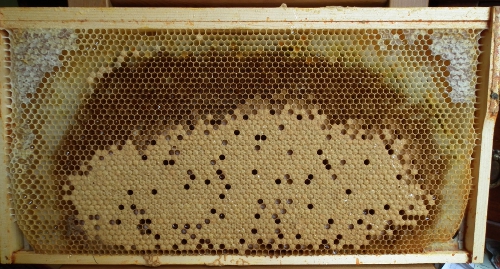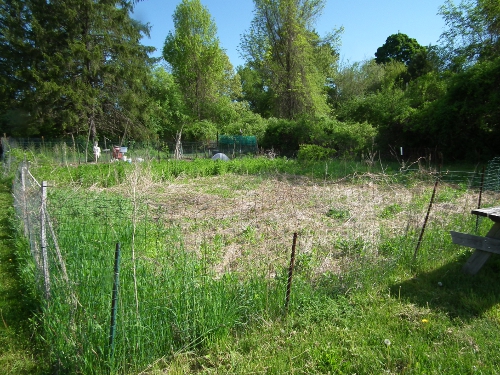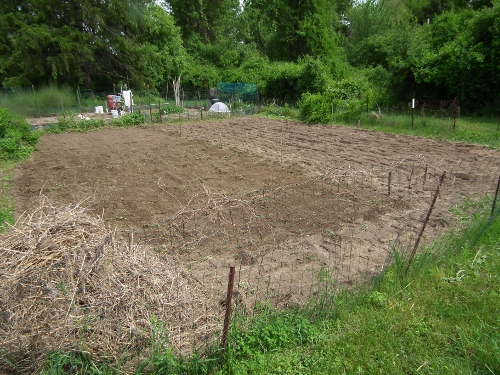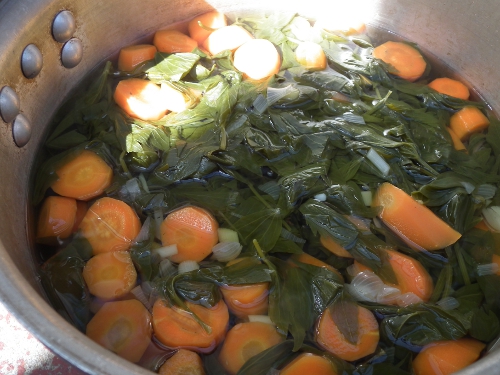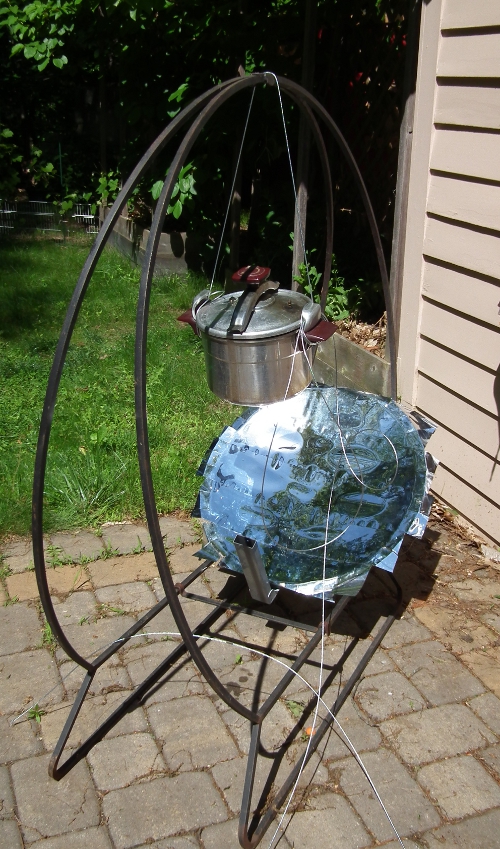That day, several months ago when my friend R and I got the IBC totes, I was part of two conversations, one with the man who arranged the sale, the second with R afterward, on the way home.
1. Bleakness
I’ll call him L. We chatted in his factory’s yard, surrounded by totes stacked like a badly built lego wall. Once L and a colleague of his had helped us load the totes into the truck, L was keen to talk transition. He had seen Transition Wayland mentioned in my email signature. He started out by congratulating us on the initiative, but soon he became upset with the human race, with his family and friends who ran from him whenever he “got this way,” and with himself. Everything he tried – like grow a little garden – fell apart. He didn’t like his job, taking care of fossil-fuel guzzling machinery. He asked how many are “doing transition” in Wayland and when I gave him the numbers he scoffed. “It won’t happen. People won’t get it until it’s too late.” Â He called himself an “emotional nutcase” over this.
It was bleak, bleak, bleak. R drifted in an out, reminding me  that we were on a schedule (and boy, we were!). But I couldn’t interrupt L. First, because I I couldn’t get a word in edgewise and secondly, because he wasn’t really talking with us but at us. His was a sermon he had rehearsed often in his head, and now it was proclaimed in that defensive, blinkered oration style of someone laughed at or ignored too many times. His colleague made his escape the moment L began.
But I also understood that this is what he needed: to say this stuff out loud to someone who wasn’t running away, who was really listening. I made sure to affirm his feelings in such a way that he understood that I was sincere and knew what I was talking about, by rephrasing what he was saying and adding some references (“Have you read Derrick Jensen?” and “you should check out Dark Mountain”). As he came to the end, my only small bit of advice I was that he shouldn’t be alone with his anger and grief, but that he’d have to make an effort to find the others.
A manager appeared at the door and beckoned for him to come back in. He obviously didn’t want to, but R and I had to make a move on too. I thanked him. That evening he sent me his personal email address and I hope we can talk more.
2. Work
The conversation with R, before we rolled into that yard, had been mostly about  gardening. But after J’s tirade we had something else to talk about. I said to R that I see many others like him, and I know there are many more and their numbers will only grow as time wears on. R confessed she hadn’t known what to say to him and hadn’t even wanted to say anything to him. She was put off by his negativity, his egocentrism, and disapproved of how he hadn’t let me speak.
I said that that hadn’t bothered me. But how to help people like L, who are embattled in bitterness, fear, guilt and self-hatred (“I am an emotional nutcase,” “the way I live, I’m just as bad”). They feel misunderstood, become more and more isolated (“my friends run away when they see me coming”), paralyzed (“it makes no difference what I do”) and they could become depressed (“I’m terribly depressed in this hell”), or violent (“sometimes I want to wreck all that machinery in there”). Â So perhaps my instinct had been correct:Â L just needed us to listen to him.
But my listening to him was only the first step, a getting-it-all-out, before reaching what really could help him: an understanding of what this “hell”  is really about. Grief.  Not once in his 30-40 minute unburdening were the words “grief,” “sadness” or “miserable” mentioned, except when I said them. Grief failed to surface because, as Stephen Jenkinson never fails to remind us, the dominant culture that L and I are part of is profoundly grief-illiterate. Our cultural bias will twist grief into guilt, and I’ve written about this many times now. L was doing it too, like his own worst enemy: to himself.
If I had had more time, if I had had the skill, could I have drawn it out of him? Could I have given him a glimpse of something enriching because lovable and not a “hell” at all, but a “companion”? I write skill, because I trust Jenkinson, who by using the word “illiterate”  indicates that grief is a skill that needs to be learned and that, like so many old skills, is getting lost fast. He sees it as one of his callings in life, to train “grief teachers” (not grief “counselors”). I see it now as my calling, to become a grief teacher, to be what so many people like L need and yes, to be what I need.
